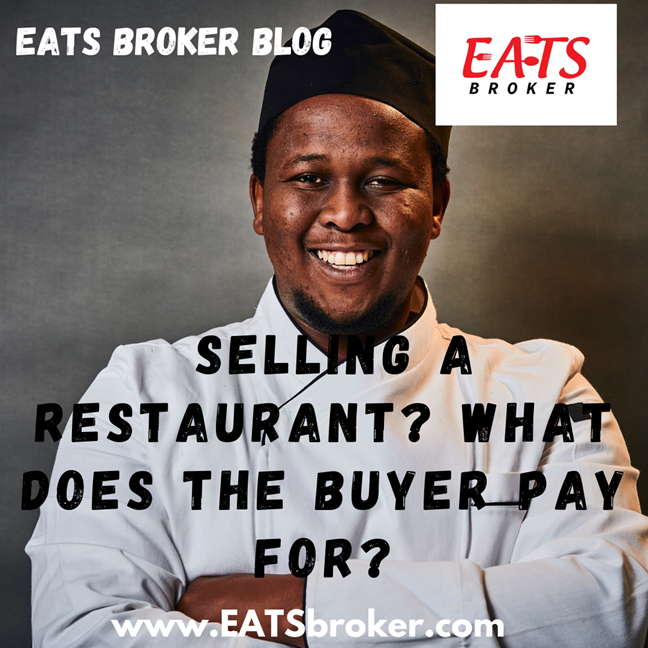When selling a restaurant, most sellers don’t know what the buyer pays for at the closing table besides the listing price. Outside of the listing price, several additional fees should be negotiated upfront between the buyer and restaurant seller.
Restaurant Business Brokers are trained to know the typical components of the fees associated with selling a restaurant and will inform potential buyers of the fees upfront. The average restaurant buyer needs to be more knowledgeable about closing costs. This blog will discuss the additional fees for selling a restaurant besides the listing price.
The Restaurant Brokerage of EATS Broker provides a list of the common items to consider:
- Inventory Cost– Both parties will usually take an itemized physical count on the inventory the night before closing or the day of closing. The on-hand and in-transit marketable inventory at the closing shall be valued using the Seller’s Cost of inventory.
Restaurant Broker Tip: The buyer should come to the inventory count with a check ready to write out to the seller after completing the inventory count.
- Closing Attorney Fees: Buyer shall pay the Closing Agent’s fees and expenses. Such expenses may include, without limitation, costs for a judgment and lien search, documentary stamps taxes, and the recording or filing of UCC-1 financing statements in the state records.
The buyer can pick the Closing Attorney to be authorized to receive, deposit, and distribute funds for the parties. The average cost for deals under $1 million can range from $3,000-$5,000.
- Landlord Security Deposit: When doing a lease assignment while selling your restaurant, the landlord will commonly assign the security deposit they have in hand to the new tenant. The buyer is responsible for paying the current restaurant seller the security deposit back. This charge is added to the Settlement Statement.
Restaurant Broker Tip: Confirm that the landlord will assign the rights to the security deposit to the new tenant. EATS Broker has seen exceptions to this common practice in the past.
- Transfer Fee: Selling a franchise restaurant comes with an additional fee as a transfer fee. Depending on the franchise brand, this fee can range from $2,000 to $30,000. The transfer fee is listed in the Franchise Disclosure Document (FDD).
Restaurant owners do not benefit from the transfer fee; it is paid directly to the Franchise. The transfer fee is commonly paid at the closing table, but some brands require the fee upfront to consider the transfer to a new buyer before closing.
- Prorations: The expenses attributable to the operation of the Business prior to 12:00 p.m. on the Closing Date, including, by way of example and not by way of limitation, expenses for electrical service, natural gas service, telephone service, internet service, pest control service and trash removal, transferable taxes, licenses, rents, utilities, and other customarily prorated items, shall be prorated as of noon on the Closing Date, and may be made on estimates of amounts prorated; provided that the parties agree to recalculate such prorations when the actual numbers are ascertained.
Next time you sell your restaurant, consider the additional fees the buyer will pay outside the purchase price. It’s highly recommended that restaurant owners use a trained Restaurant Business Broker to negotiate and help maximize the dollar value received at closing.
For more information on the restaurant market and other available consulting services or a complimentary restaurant valuation, contact Restaurant Business Broker Dominique Maddox at 404-993-4448 or email at [email protected]. Visit our website at www.EATSbroker.com


